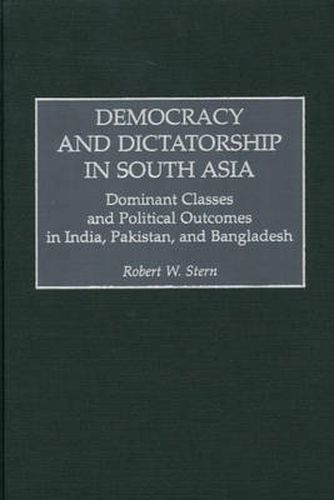Readings Newsletter
Become a Readings Member to make your shopping experience even easier.
Sign in or sign up for free!
You’re not far away from qualifying for FREE standard shipping within Australia
You’ve qualified for FREE standard shipping within Australia
The cart is loading…






In reaction to British imperialism during the 19th and 20th centuries, Indian Muslims and Hindus imagined and invented their separate and distinct religious communities and communal nationalisms. These were institutionalized in the subcontinent’s political systems by the British government in collaboration with Indian politicians. Stern argues that this production of communalism has been crucial in structuring the composition and organization of South Asia’s politically dominant classes, and that they, in turn, have been crucial in determining parliamentary democracy’s growth or atrophy on the subcontinent.
In what became India, the overwhelmingly Hindu National Congress formed a coalition of professionals and landed peasants, later joined by industrialists, that was friendly to the development of parliamentary democracy. In its western provinces, Pakistan’s legacy from British government was a ruling coalition of landlords and civilian and military bureaucrats that has continued to impede the development of parliamentary democracy. Until 1971, this coalition equated parliamentary democracy with the loss of their dominance to Pakistan’s Bengali majority. Only among them, in Pakistan’s eastern province, now Bangladesh, was there a politically dominant coalition of classes that was friendly to the development of parliamentary democracy. It had the ironic effect in Pakistan of entrenching the west’s anti-democratic coalition. Dogged by the legacies of twenty-four years as Pakistan’s subordinate province, disorganization among its dominant classes and a vanished rural base, the development of parliamentary democracy in Bangladesh has been slow and uneven.
$9.00 standard shipping within Australia
FREE standard shipping within Australia for orders over $100.00
Express & International shipping calculated at checkout
In reaction to British imperialism during the 19th and 20th centuries, Indian Muslims and Hindus imagined and invented their separate and distinct religious communities and communal nationalisms. These were institutionalized in the subcontinent’s political systems by the British government in collaboration with Indian politicians. Stern argues that this production of communalism has been crucial in structuring the composition and organization of South Asia’s politically dominant classes, and that they, in turn, have been crucial in determining parliamentary democracy’s growth or atrophy on the subcontinent.
In what became India, the overwhelmingly Hindu National Congress formed a coalition of professionals and landed peasants, later joined by industrialists, that was friendly to the development of parliamentary democracy. In its western provinces, Pakistan’s legacy from British government was a ruling coalition of landlords and civilian and military bureaucrats that has continued to impede the development of parliamentary democracy. Until 1971, this coalition equated parliamentary democracy with the loss of their dominance to Pakistan’s Bengali majority. Only among them, in Pakistan’s eastern province, now Bangladesh, was there a politically dominant coalition of classes that was friendly to the development of parliamentary democracy. It had the ironic effect in Pakistan of entrenching the west’s anti-democratic coalition. Dogged by the legacies of twenty-four years as Pakistan’s subordinate province, disorganization among its dominant classes and a vanished rural base, the development of parliamentary democracy in Bangladesh has been slow and uneven.